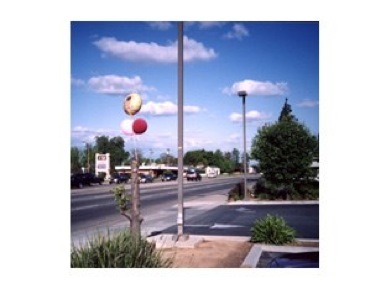Stephanie Ellis

Stephanie Ellis is an interdisciplinary scholar who teaches studio as well as cultural studies seminars. Her seminars examine the ethics of knowledge production and dissemination. The agenda is to investigate how visual relations exclude or ignore what does not fit into ideal categories and she encourages students to ask what intellectual feats produce such erasures. Ellis’ MFA and PhD in the Theories and Practices of Visual Culture are from the University of California at Davis. She is a recipient of the UCD Skowhegan School Scholarship and the UC Intercampus Arts Program Grant. Her writing has appeared in journals such as parallax, Feminist Studies, and Architectural Design. She is also a curator (Work/Space, a nationally traveling exhibition on corporate culture) and an artist (Bad Girls West). Several of her seminars offer new models of collaborative mentoring that cross studio and theory as well as graduate and undergraduate programs. She and Stacy Garfinkel are co-founders of Spell, an art + research studio inspiring public will and imagination for education (studiospell.com). Ellis and Garfinkel are co-chairing a panel at the 2007 CAA.
870 Church Street # 1 San Francisco, CA 94114 (415) 655.9646 stephanie_ellis@mac.com

EDUCATION
PhD
Critical Theories and Practices of Visual Culture
Designated Emphasis in Feminist Theory and Research
Designated Emphasis in Critical Theory
University of California, Davis 2002
MFA
University of California, Davis 1991
BA
Cultural Anthropology, University of California, Riverside 1968
TEACHING
Mills CollegeVisiting Faculty
MFA Studio Art Program, Spring 2011
California College of the Arts, Visiting Faculty
Graduate Program of Visual and Critical Studies, Spring 2010
Foundations in Critical Studies: Ethics and Social Justice, Fall 2010 + Spring 2011
San Francisco Art Institute, Associate Professor
School of Interdisciplinary Studies 1998-2009
Interim Dean of Urban Studies, Humanities, and Critical Studies, Spring 2008
California College of the Arts, MFA Program, Visiting Faculty, Fall 1999, 2001
San Francisco State University, Women’s Studies, Instructor, Summer 1998
University of California, Davis, Women’s Studies, Instructor 1996 -1997
COURSES:
Critical Studies
Learning is a Public Art: an innovative seminar and tutorial that interrogates education as practice, policy and public conversation and puzzles out histories of stupidity, confusion, doubt and wonder.
Dictation, Jargon + Quotation: investigates three terms: jargon, dictation and quotation central to the reproduction and mutation of culture and the success or failure of exchange with an other (even
in ourselves). This inquiry will inspire reflection on the complexity of one’s own location in language and as a cultural agent in a world that is neither fixed nor homogeneous.
Frameworks for Art and Urbanism: examines the synergy between art making and city building in historical and theoretical terms. Foundation course for Urban Studies MA program.
Mimesis + Alterity: disturbs the coherent and distinct image of the nation state, community and self while examining the messy and contingent boundaries between sameness and difference.
Derelict Nation: explores the relationship of the modern state to the past -- from the colonial appropriation of ruins and the establishment of the western museum to a litany of ground zeros.
Dust, Dirt + Danger: examines how modern technologies extend traditional limits of vision (beyond the dust mote) to produce beneficial opportunities as well as orders of policing and regimes of cleansing.
Politics of the Everyday: inquires into how the space of the so-called ordinary and trivial became an object of knowledge and how practices at this site are potentially the most radical and the most oppressive.
Memory/Loss: examines memory as a co-process with forgetting, and explores trauma as a "science of wounds”.
Underground Imagination: examines how modern notions of the underground replaced traditional notions of the underworld.
Visual Relations of Corporate Culture: unsettles the myth that the studio and the office are separate spheres.
From Copy to Chip: investigates the correspondence between economic modes of production and categories of perception.
Politics of Scale: questions how all metaphor might be propelled by a change in scale, with a focus on how the small is both a copy of the real and its excess.
Mall Culture: examines the history of visual codes and looking practices in the shopping mall, with a special emphasis on the phenomenon of “mall movies”.
Tourists + Vagabonds: investigates the historical sites/sights of encounter that lace through ideal and abject notions of global subjectivity.
Artist Spaces: looks at the historical co-production between three sites of art making (studios, lofts and terminals), urban life, and cosmopolitan identity.
Studio:
Graduate Critique Seminar
Graduate and Undergraduate Tutorial
Graduate and Undergraduate Directed Study
Summer MFA Guided Study
Advanced Projects New Genre
RECENT STUDIO COLLABORATIONS
iiiahh is an on-going art collective with artist Virginia White. iiiahh offers portable, miniature collections for free public viewing and handling. Mission storefront project: Momentous Miniatures, Summer 2010. www.iiiahh.com
“Staging Abu Ghraib” with artist Serena Wellen employs the video still to comment on the gestures of policing and stress positions used in torture, 2010.
POLICY RESEARCH
Spell (2006-08) employed the distinct interdisciplinary skills of visual artists and scholars to investigate education as a public practice and contribute to enlightened educational policy. All too frequently, artists have been marginalized into directing school murals, giving education a fresh face or creating image support for policy decisions. Education is a contested public arena where strategies of looking―the everyday trade of an artist―impact the content and direction of public debate. Our work was a hybrid portfolio of writing, images, events, workgroups, and seminars.
Stacy Garfinkel and I co-chaired a panel at CAA 2007 (New York); had two publications; team-taught an interdisciplinary undergraduate tutorial/seminar “Learning Is a Public Art,” and designed a website/virtual office. All of these projects mined an attention to perspective, scale, history, and the overlooked.